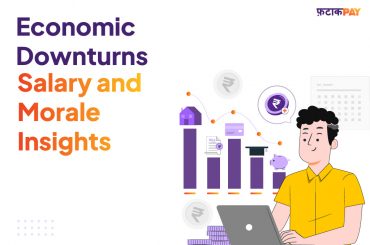If there was a silver lining to the Covid-19 pandemic, it was many of us realizing the importance of taking care of ourselves. At least 80% of the general population started engaging in some form of self-care after the pandemic. The same is applicable to our financial health as well. It was during and after this time that more and more people started caring about financial wellness. Thankfully, many people adopted financial wellness as a part of their lifestyle.
But what exactly is financial wellness? And what are the new innovations in the field? Let us find out.
What is financial wellness?
Financial wellness refers to being financially content and sustainable with the income you have. If you’re financially well, you are able to take care of all your bills, save for the future, and spend freely in the present without worrying about whether or not you’ll be able to afford the things you want. Your mental and physical health may benefit from achieving financial wellness as well as spending less time stressing about money. Simply put, financial wellness is the capacity to maintain a good financial lifestyle.
The four elements of financial wellbeing
Let us explore how you can gauge financial wellbeing and see how you can achieve it using the four elements of financial well-being.
Security in the present day
Primary factor that determines financial wellness is your financial security in the present day. This simply means that you should be able to comfortably pay your bills and spend according to your lifestyle without any distress. Along with having the capability to pay for the present day needs one must also prioritize keeping aside a portion of their income for the purpose of meeting future contingencies.
Financial security in the present day boils down to having a limited amount of debt. While this may sound simple, it may not be easy to maintain for Indians, who mostly belong to the middle-class. As of March of 2022, domestic debt in India amounted to 14.1% of GDP.
Security in the future
Security in the future refers to your financial ability to absorb a financial shock in the future. This could be an emergency that requires a substantial amount of money or a sudden job loss. This requires you to have a stable emergency fund and a second source of income. As a rule of thumb, you should have at least three to six months of your monthly salary as an emergency fund.
Freedom of financial choice in the present
Freedom of choice in the present refers to an income that lets you make required purchases without putting your budget in trouble. This could be anything from a dream product to a dream trip.
On track to meet your financial goals
Finally, you should be sticking to your plans and remain on track to meet your financial goals. This helps you make sure your future is financially stable as well.
Meeting the above four points can ensure your financial wellness. But how can you reach there? Let us see.
Financial wellness apps and software
A mobile application or software that helps you with your finances is nothing new. But financial softwares have grown to a stage where they can help you with financial wellness as well. There are apps that let you set goals, keep a check of your spendings through analyzing text messages and other transaction details, and even provide expert advice for your financial health.
Many employees now make financial wellness software accessible to their employees similar to how they provide mental or physical health platforms.







